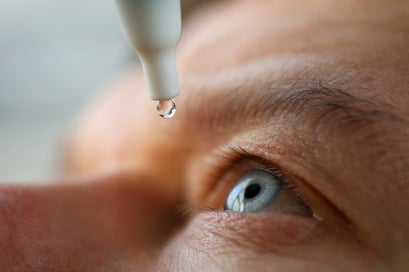Summarize This Article:
Summarize This Article:

 Neurotrophic keratitis, a rare but serious degenerative corneal disease, impairs the nerves that send signals to the cornea. It’s characterized by three stages of epithelial changes that track the progression of the disease and severity of symptoms. These stages indicate the gradual loss of corneal sensation, which may result in epithelial breakdown, corneal ulceration, and vision problems.
Neurotrophic keratitis, a rare but serious degenerative corneal disease, impairs the nerves that send signals to the cornea. It’s characterized by three stages of epithelial changes that track the progression of the disease and severity of symptoms. These stages indicate the gradual loss of corneal sensation, which may result in epithelial breakdown, corneal ulceration, and vision problems.
Understanding the stages of the disease is crucial for effectively managing your eye health and preventing complications. With early detection and the right treatment plan, you can assuage Neurotrophic Keratitis symptoms and maintain your eyesight.
A key feature of neurotrophic keratitis is reduced corneal sensation, which can make the disease fly under the radar in its early stages. Symptoms are often mild or go unnoticed altogether, so many patients don’t seek treatment until well after the disease has progressed.
Stage 1 neurotrophic keratitis is marked by eye characteristics that may include:
Stage 1 neurotrophic keratitis is treated with preservative-free artificial tears, which can improve the epithelial surface. Early diagnosis and ongoing monitoring are key to beginning the healing process and preventing severe corneal damage.
Stage 2 is marked by persistent epithelial defects and worsening symptoms of redness, dryness, eye pain, and blurred vision. Its characteristics may include:
Risk factors for progressing neurotrophic keratitis include pre-existing infections and viruses, such as herpes simplex virus (HSV) and herpes zoster (VZV). Patients with diabetes or complications from trigeminal neuralgia surgery are also at an increased risk for developing stage 2 neurotrophic keratitis. Less frequently, corneal anesthesia and nerve damage may be provoked by the chronic use of topical ocular medications
Treatment in this stage may include the continued use of artificial tears, and the addition of prophylactic antibiotic drops to promote healing. Conjunctival flap surgery may be considered in some cases to stabilize the ocular surface, prevent additional inflammation, reduce pain, and preserve vision. Tarsorrhaphy, a procedure that partially sews or glues the eyelids together to help the cornea heal, may also be an option for high-risk patients. If left untreated, stage 2 neurotrophic keratitis will progress into stage 3, where ulcers, discomfort, and vision impairment will persist.
Stage 3 neurotrophic keratitis represents a more advanced form of the condition and presents risks that require immediate intervention. In addition to increasingly dry eyes, blurred vision, eye pain, corneal thinning, epithelial defects, edema, and infiltrates, stage 3 characteristics may also include:
A corneal ulcer is a medical emergency. They typically present with symptoms such as red, watery, bloodshot eyes, severe pain, and eye discharge. Treatment will depend on the severity of the ulcers, perforation, vision impairment, and your individual health needs. Options may include:
 Because neurotrophic keratitis is often caused by underlying conditions, infections, or surgical procedures, your lifestyle and overall health management play an important role in preventing the disease. Here are a few preventative measures you can take if you’re at risk for worsening neurotrophic keratitis:
Because neurotrophic keratitis is often caused by underlying conditions, infections, or surgical procedures, your lifestyle and overall health management play an important role in preventing the disease. Here are a few preventative measures you can take if you’re at risk for worsening neurotrophic keratitis:
Each stage of neurotrophic keratitis brings new challenges, lifestyle adjustments, and treatment options, so finding the right care plan and coping with the disease can be overwhelming. Our reconstructive surgeons are here to guide you through the process and give you the best care possible so you can resume daily activities pain-free. Should corneal neurotization be the right option for you, we’ll establish a personalized treatment plan that factors in your medical history and lifestyle. Contact us to consult with an NJ eye surgeon and determine if you’re a candidate for corneal neurotization surgery.
.jpg)
.jpg)